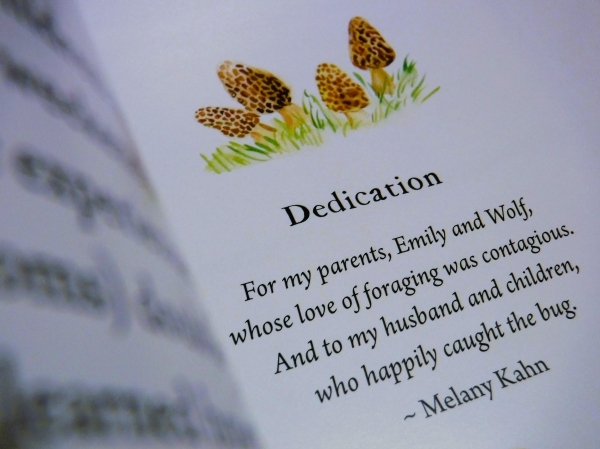BRATTLEBORO — Melany Kahn knows many people recognize her father, the late acclaimed artist Wolf Kahn, for his blurred, bucolic paintings. But she remembers his delight in searching for the details he left out of his landscapes.
“My dad loved to forage for anything you could pluck off a tree or bush or pick off the ground,” Kahn recalled recently at the family's Vermont homestead.
Her mother, fellow abstract expressionist Emily Mason, had a special affinity for mushrooms.
“If you took a trip in the car with my parents, you had to have a book and you had to have a basket,” Kahn said. “The book was because my dad would see a barn, veer off the side of the road and do a pastel for 45 minutes. And it was really helpful if you'd like to forage because you could jump in the woods with my mom and come out with a full basket.”
Emily Mason died in 2019, Wolf Kahn followed three months later in 2020. But the family tradition lives on through their daughter's new children's book, Mason Goes Mushrooming.
“When I was growing up, my parents took me on fantastic treasure hunts for delicious wild mushrooms,” Kahn begins the 32-page hardcover from Brattleboro's Green Writers Press. “They taught me which mushrooms we could safely eat, and which ones were inedible and could lead to a stomach ache, or might even be poisonous. 'When in doubt, throw it out,' my mom would say.”
The story of Kahn's book starts at the circa 1906 Windham County farmstead her family purchased in 1968. There, the two artists and their two daughters spent their first early summers without electricity or hot water, just kerosene lamps and a wood stove for cooking whatever they collected outside.
Kahn passed on the foraging tradition to her own children as her parents wired the house into more and more of a home. After the couple died just before the COVID-19 pandemic, she invited school friend and New York illustrator Ellen Korbonski to join her there for Christmas 2020.
“Ellen was painting a watercolor of the birds at the window,” Kahn recalled. “I said, 'You can just do that? That just comes out of the tip of your brush?'”
Kahn may be the daughter of artists, “but I don't have, believe it or not, an ounce of artistic talent.”
That said, Kahn was prompted to tell Korbonski her idea for a book about foraging.
“After years of leading kids on forays, I had it in my head - four mushrooms, four seasons, four recipes …”
Soon Kahn was writing, Korbonski was watercoloring and Green Writers Press - publisher of such Vermont authors as former Gov. Madeleine Kunin and state poet laureate Sydney Lea - was contracting with Windsor County's Springfield Printing Corp. to produce the book.
“There's not a lot of tension in mushroom hunting, so the hard part was to make this an adventure,” Kahn said. “The story can't just be 'little boy goes into woods, finds mushrooms, brings them home.' Something has to happen.”
And so Kahn envisioned her now 20-year-old son Mason as a boy (spoiler alert) struggling to find morels in the spring, chasing his dog in search of chanterelles in the summer and competing with grazing deer for black trumpets in the fall.
The colorful combination of family, foraging and a history of fine art spurred a camera crew from the CBS news program Sunday Morning to film Kahn and her son mushrooming on their 300-acre property for a coming broadcast.
Kahn is set to release the book Tuesday, Oct. 4, on what would have been her father's 95th birthday. To celebrate, she'll serve up cake and copies of the hardcover at a public event at 5 p.m. at the Brattleboro Museum & Art Center.
Kahn has dedicated the book to her parents, husband and children. She also credits inspiration from Richard Louv, author of Last Child in the Woods: Saving Our Children from Nature-Deficit Disorder, and Senegalese forestry engineer Baba Dioum, best known for his quote, “In the end we will conserve only what we love; we will love only what we understand; and we will understand only what we are taught.”
“I feel a zealousness around the importance of our connection to nature,” Kahn said. “All I want to do is get kids back out into the woods. This book is like a calling card to lead more of that.”
